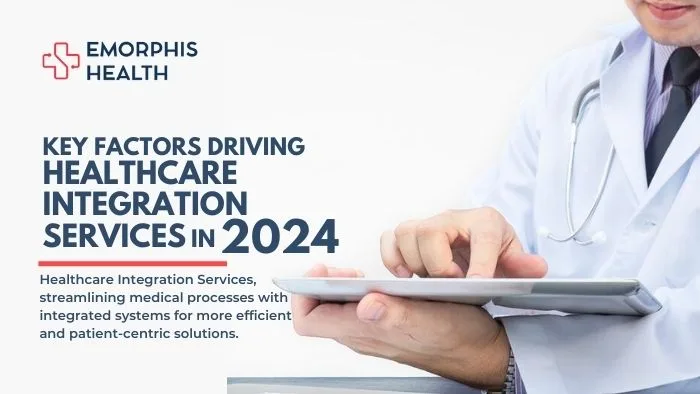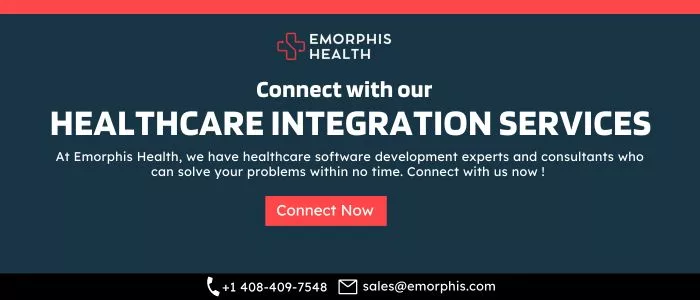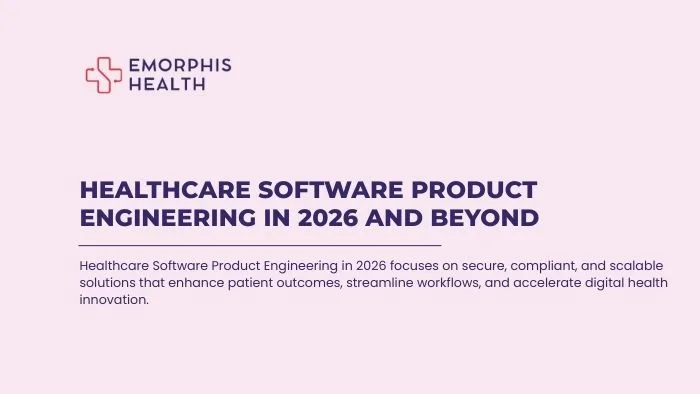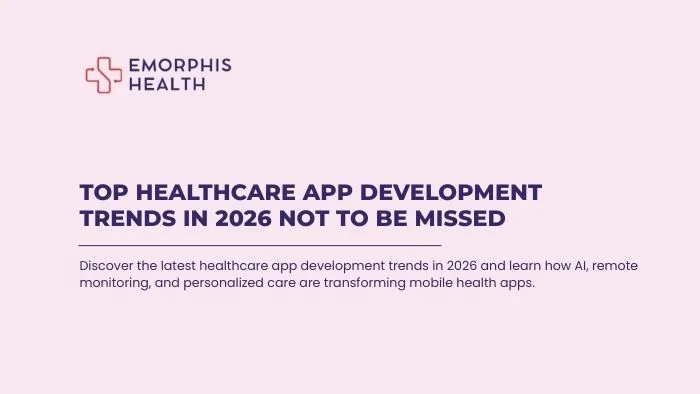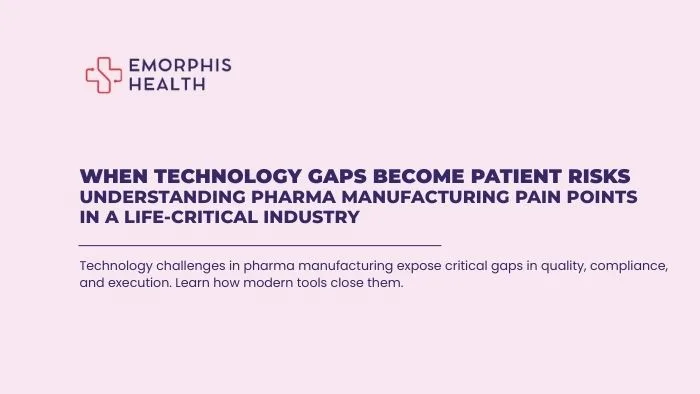Introduction
See Contents
In the dynamic landscape of healthcare, the year 2024 stands as a pivotal moment for embracing transformative changes, with a spotlight on the critical need for healthcare integration services. As healthcare systems continue to evolve, integration becomes the linchpin for achieving enhanced efficiency, improved patient outcomes, and streamlined processes. This article explores why healthcare integration services are imperative in 2024 and outlines the key considerations for organizations embarking on this transformative journey.
The Need for Integration
The fragmented nature of healthcare data has been a longstanding challenge, hindering the seamless exchange of information among different stakeholders. The imperative for Medical Integration Services lies in addressing this fragmentation, fostering interoperability, and ensuring a cohesive healthcare ecosystem. Moreover, by integrating disparate systems, healthcare providers can streamline administrative processes, reduce redundancies, and allocate resources more effectively.
The need for integrated healthcare systems is imperative for fostering better medical solutions. In a rapidly advancing healthcare landscape, patient care is becoming increasingly complex, requiring seamless coordination and collaboration among various components of the healthcare ecosystem. Integrated healthcare systems facilitate the real-time exchange of information between different healthcare entities, ensuring that medical professionals have a comprehensive and up-to-date understanding of a patient’s health profile. This cohesion not only enhances the accuracy of diagnoses but also enables more personalized and timely treatment plans. Moreover, integrated healthcare systems streamline administrative processes, reduce errors, and optimize resource allocation, contributing to overall operational efficiency. As healthcare continues to evolve, the demand for integrated healthcare systems becomes essential to meet the challenges of providing high-quality, patient-centric care in a more interconnected and technologically advanced environment.
Technological Advancements
In 2024, emerging technologies play a pivotal role in driving the adoption of healthcare integration services. Artificial intelligence (AI) and machine learning, for instance, not only facilitate data analysis but also contribute to predictive analytics, empowering healthcare professionals to make informed decisions. Furthermore, the integration of wearable devices and the Internet of Things (IoT) in healthcare systems brings real-time patient data to the forefront, enhancing the overall quality of care.
Benefits of Healthcare Integration Services
Healthcare integration services offer a myriad of advantages that go beyond the mere coalescence of disparate systems. The seamless exchange of information among healthcare stakeholders translates into improved patient outcomes, streamlined workflows, and enhanced overall efficiency.
1. Improved Patient Outcomes
Healthcare Integration Services or Medical Integration Services play a pivotal role in elevating patient care to new heights. By fostering a cohesive ecosystem where patient data seamlessly flows between different points of care, healthcare professionals gain a comprehensive understanding of a patient’s medical history, current conditions, and treatment plans. This holistic view enables them to make informed decisions promptly, thereby positively impacting patient outcomes. Moreover, the integration of data from various sources ensures that no crucial information is overlooked, leading to more accurate diagnoses and personalized treatment plans.
2. Enhanced Care Coordination with Healthcare Integration
One of the key benefits of healthcare integration services is the facilitation of seamless care coordination among different healthcare providers. When various components of the healthcare system, such as hospitals, clinics, and laboratories, share real-time information, the result is a more synchronized and patient-centric approach to healthcare. Physicians, specialists, and other healthcare professionals can collaboratively contribute to a patient’s care plan, ensuring continuity and avoiding redundancies. This enhanced coordination not only improves the quality of care but also reduces the likelihood of medical errors.
3. Efficient Data Exchange
In the realm of healthcare, timely access to accurate information can be a game-changer. Medical Integration Services streamline the exchange of data among providers, eliminating the need for manual data entry and reducing the risk of data errors. Moreover, interoperability ensures that patient records, test results, and other critical information are readily accessible to authorized personnel when and where they are needed. This efficiency in data exchange translates into faster decision-making, shorter wait times, and an overall more responsive healthcare system.
4. Financial Benefits
The adoption of healthcare integration services is not only beneficial for patient care but also for the financial health of healthcare organizations. By streamlining administrative processes, reducing paperwork, and minimizing duplication of efforts, integrated healthcare systems lead to cost savings. Furthermore, the enhanced efficiency in billing processes and claims management contributes to revenue cycle optimization. In fact, organizations that invest in healthcare integration services and integrated healthcare systems often experience a notable return on investment through increased operational efficiency and improved financial performance.
5. Improved Workflow and Productivity
Healthcare integration services or medical integration services contribute to a more efficient and streamlined workflow for healthcare professionals. By automating routine tasks, such as data entry and administrative processes, healthcare providers can allocate more time to patient care. This increased efficiency not only enhances productivity but also reduces the likelihood of burnout among healthcare professionals. Moreover, the seamless flow of information allows for quicker decision-making, enabling healthcare teams to respond promptly to evolving patient needs.
6. Patient Empowerment with Healthcare Integration
Incorporating healthcare integration services empowers patients by providing them with greater control over their health information. Patient portals and digital health tools, integrated into the healthcare ecosystem, allow individuals to access their medical records, test results, and treatment plans. This transparency fosters active participation in their care, encouraging patients to make informed decisions about their health. Engaged and informed patients are more likely to adhere to treatment plans, leading to better long-term health outcomes.
In conclusion, the benefits of healthcare integration services are multifaceted, encompassing improved patient outcomes, enhanced care coordination, financial advantages, streamlined workflows, and increased patient empowerment. As healthcare organizations continue to evolve, embracing integration becomes not just a strategic choice but a necessity for delivering high-quality, patient-centered care in the modern healthcare landscape.
Challenges and Solutions in Healthcare Integration Services
While the benefits of healthcare integration services are compelling, organizations must confront several challenges on their journey toward a seamlessly integrated healthcare ecosystem. These challenges, ranging from data security concerns to interoperability issues, require proactive solutions to ensure the successful implementation of integration services.
a. Data Security and Privacy Concerns with Healthcare Integration
One of the primary challenges in healthcare integration services revolves around the sensitive nature of patient data. As healthcare systems become more interconnected, the risk of data breaches and unauthorized access increases. However, robust security measures, including encryption protocols and access controls, can address these concerns. Implementing secure authentication mechanisms and regularly auditing system access help safeguard patient information. Moreover, educating staff on data security best practices is crucial in maintaining a secure healthcare environment.
b. Interoperability Challenges
Achieving seamless interoperability among diverse healthcare systems and technologies poses a significant challenge. The existence of disparate systems, each with its data formats and standards, can hinder the smooth exchange of information. However, adopting standardized data formats, such as HL7 and FHIR, facilitates interoperability. Moreover, the development and implementation of interoperability frameworks ensure that diverse healthcare applications can communicate effectively. Collaboration between healthcare IT vendors to create standardized interfaces further promotes interoperability.
Find the details of Key Challenges and Resolutions on Healthcare Interoperability
c. Regulatory Considerations
Healthcare is a highly regulated industry, and compliance with various standards and regulations can be complex. Navigating through regulatory frameworks, such as HIPAA (Health Insurance Portability and Accountability Act) and GDPR (General Data Protection Regulation), is a challenge for organizations implementing healthcare integration services for integrated healthcare systems. Nevertheless, by conducting regular compliance audits, staying abreast of regulatory updates, and incorporating compliance checks into the integration process, organizations can ensure adherence to regulatory requirements. Legal counsel and compliance experts play a pivotal role in guiding organizations through the regulatory landscape.
d. Resistance to Change
Resistance to change from both healthcare professionals and administrative staff can impede the successful integrated healthcare systems with the implementation of healthcare integration services. However, involving stakeholders in the decision-making process and communicating the benefits of integration can mitigate resistance. Providing comprehensive training programs and support during the transition helps staff adapt to new workflows seamlessly. Additionally, fostering a culture of continuous improvement and emphasizing the positive impact on patient care can shift perceptions and promote acceptance of integrated healthcare systems.
e. Cost Implications with Healthcare Integration
While healthcare integration services or medical integration services offer long-term financial benefits, the initial investment can be a hurdle for some organizations. The cost of implementing new technologies, upgrading existing systems, and training staff can strain budgets. Nevertheless, a strategic approach to budgeting, coupled with a thorough cost-benefit analysis, helps organizations prioritize investments. Exploring partnerships, shared resources, and government incentives for healthcare IT adoption can alleviate financial burdens and facilitate a smoother transition to integrated healthcare systems.
f. Technical Complexity
The technical complexity associated with integrating diverse healthcare systems and technologies poses a challenge for IT teams. However, leveraging experienced IT professionals, engaging with specialized integration vendors, and adopting user-friendly integration platforms can simplify the technical aspects. Moreover, creating a phased implementation plan allows organizations to address technical challenges gradually, minimizing disruption to daily operations.
Overall, while challenges exist in the implementation of healthcare integration services, or medical integration services proactive and strategic solutions can overcome these obstacles. Addressing data security concerns, ensuring interoperability, navigating regulatory landscapes, managing resistance to change, balancing costs, and simplifying technical complexities are essential steps in realizing the full potential of integrated healthcare systems. As organizations navigate these challenges, they pave the way for a more interconnected, efficient, and patient-centric future in healthcare.
Future Trends in Healthcare Integration Services
The landscape of healthcare integration services is continually evolving, driven by advancements in technology, changing patient expectations, and the need for more efficient and patient-centric care delivery. As we look ahead to the future, several key trends are poised to shape the trajectory of healthcare integration, ushering in a new era of interconnected and data-driven healthcare systems.
i. Advanced-Data Analytics
The future of healthcare integration services or medical integration services will see a significant emphasis on advanced data analytics. As the volume of health data continues to grow, leveraging analytics tools and artificial intelligence (AI) will become paramount. Predictive analytics, machine learning algorithms, and data-driven insights will empower healthcare professionals to anticipate trends, identify high-risk patients, and tailor personalized treatment plans. This proactive approach to healthcare decision-making will result in more effective and efficient patient care.
ii. Integration of Telehealth and Remote Monitoring
The rise of telehealth services and remote patient monitoring is a trend that will deeply influence healthcare integration. Seamless integration of telehealth platforms with existing healthcare systems will allow for the smooth exchange of patient data between in-person and virtual care settings. This integration ensures that healthcare providers have a comprehensive view of a patient’s health, regardless of the care modality, promoting continuity and improving the overall patient experience.
Find more information on Remote Patient Monitoring software development.
iii. Blockchain Technology in Healthcare
Blockchain technology is poised to revolutionize healthcare integration by addressing data security and interoperability challenges. The decentralized nature of blockchain ensures the integrity and security of health records, reducing the risk of data breaches. Furthermore, blockchain facilitates secure and transparent sharing of patient data across different healthcare entities, fostering interoperability. As a matter of fact, blockchain’s potential to create a tamper-proof and standardized system for health data exchange holds great promise for the future.
iv. Interconnected Ecosystems and Interoperability Standards
The future will witness a move towards more interconnected healthcare ecosystems, where various healthcare entities seamlessly share information. Interoperability standards, such as Fast Healthcare Interoperability Resources (FHIR), will play a pivotal role in ensuring compatibility between different systems. The development and adoption of standardized interfaces will promote data exchange and collaboration among diverse healthcare applications, fostering a more cohesive and integrated healthcare landscape.
Find more details on FHIR Implementation
v. Consumer-focused and Patient-Centric Integration
Future healthcare integration services will increasingly prioritize a patient-centric approach. Medical integration services will extend beyond traditional healthcare settings to include patient-generated data from wearables, mobile apps, and other digital health tools. This holistic approach to integration ensures that patients actively participate in their care, making informed decisions based on real-time data. Healthcare organizations will focus on creating seamless and user-friendly interfaces, empowering patients to manage their health more effectively.
vi. Artificial Intelligence for Decision Support
Artificial intelligence (AI) will become a critical component of healthcare integration services, providing decision support for healthcare professionals. AI algorithms will assist in clinical decision-making, diagnostic processes, and treatment planning. With medical integration services, integrating AI-driven decision support systems into healthcare workflows will enhance the accuracy and efficiency of medical interventions, leading to improved patient outcomes.
vii. Continuous Evolution of Integration Platforms
Integration platforms will continue to evolve, becoming more agile, scalable, and adaptable to changing healthcare needs. Cloud-based integration solutions will gain prominence, offering flexibility and accessibility for healthcare organizations. Moreover, integration platforms will be designed to accommodate emerging technologies, ensuring compatibility with the evolving healthcare IT landscape.
Overall, the future trends in healthcare integration services or medical integration services point towards a transformative era where advanced technologies, interoperability standards, and patient-centric approaches converge to create a more interconnected and efficient healthcare ecosystem. As organizations prepare for the future, embracing these trends will be essential to harness the full potential of healthcare integration and provide high-quality, personalized care to patients in the years to come.
Conclusion
In the rapidly evolving realm of healthcare, medical integration services emerge as a transformative force. Despite challenges, the benefits—improved patient outcomes, streamlined workflows, and financial optimization—are significant. Looking ahead, trends like advanced analytics and patient-centric approaches promise to shape a future where healthcare is not just connected but more efficient, adaptable, and ultimately focused on delivering better, more personalized care. Embracing healthcare integration services is more than a technological shift; it’s a commitment to a healthier, interconnected future in healthcare.

